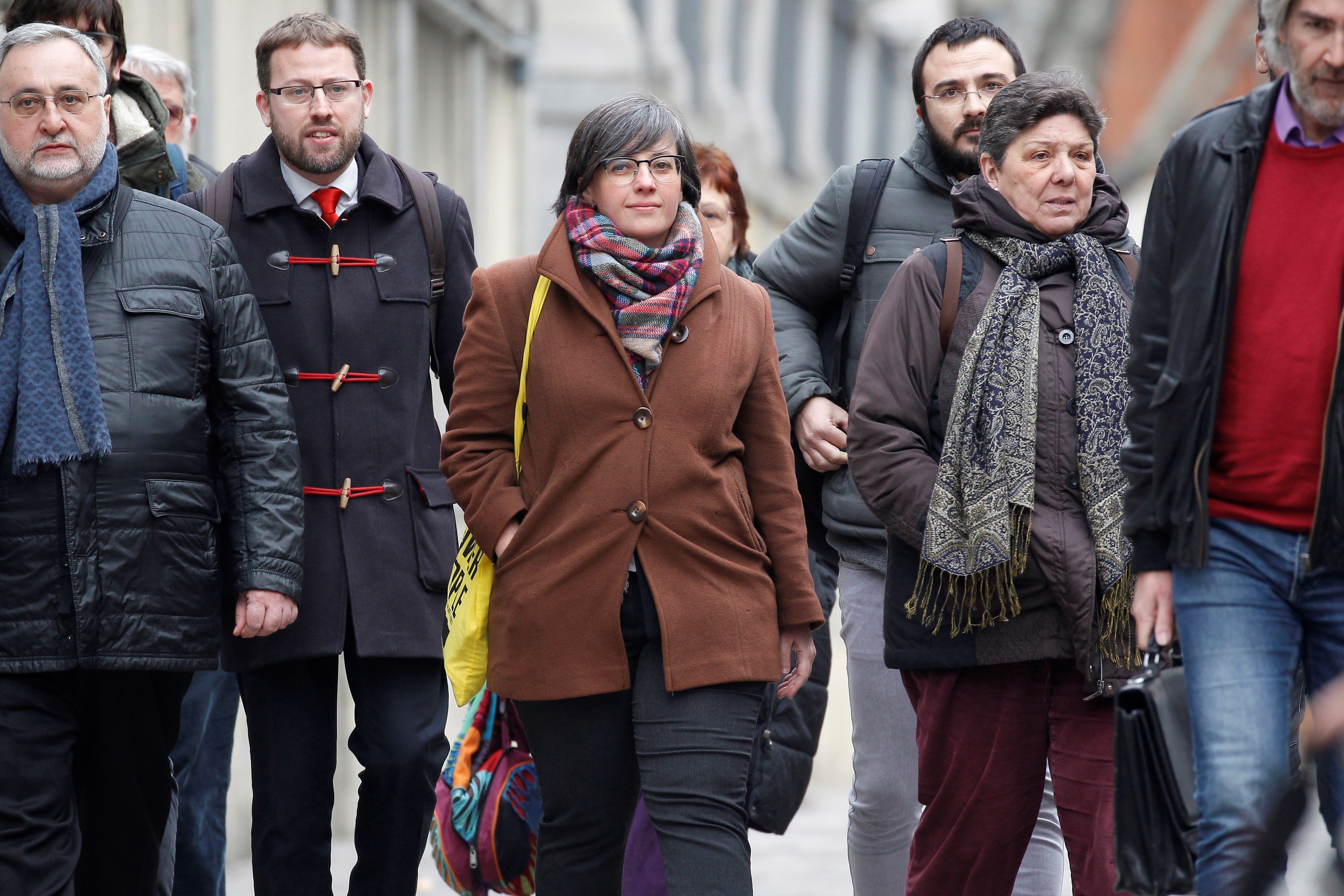Former CUP deputy Mireia Boya has declared the clear intention to move forwards with the Catalan republic, denying any suggestions that the 27th October declaration of independence was "cosmetic", that instead she believed it was looking to have a "real effect", for which reason she voted in favour of it, although she admited that it couldn't be fully enacted thanks to the application of article 155 of the Spanish Constitution. She thereby denied it was a symbolic proclamation as the rest of the suspects have told the Supreme Court in their statements.
Boya also said, like the others under investigation, that they were constantly looking for dialogue with the Spanish state and a negotiated solution to the conflict, and that she was unaware of the Enfocats document: "I had never seen the Enfocats document until I saw the Civil Guard report".
The public prosecutor hasn't asked for any precautionary measures against Boya, who only responded to questions from the judge and her lawyer, Carles López. Right-wing party VOX, the acusación popular1, says they considered asking for such measures, but so far haven't either, so Boya leaves court facing charges, but can go home.
Boya defended the "democratic legitimacy and legality" of the decisions taken in the framework of the independence process.
Like the others under investigation, she explained that "there's been no violence in Catalonia" beyond that used by the Spanish police. As an example, she told the judge that "in Calella, the police went out one night in civilian clothes to hunt independence supporters". On the topic of the events of 20th September and the damage caused to the Civil Guard vehicles in front of the Catalan Economy ministry, she said that various journalists were on the vehicles throughout the day.
The judge didn't ask Boya if she accepts the Constitution and outside, to the media, the former deputy said that "the interpretation of the Constitution shouldn't become a wall".
Her lawyers tried to get the charges overturned saying that, as president of CUP's parliamentary group, she was part of the group of people who "would have given the political support" necessary to drive forwards the independence process. But Llarena turned down the request and Mireia Boya declared at 11:11am in the Supreme Court today.
Boya warned this Monday in a press conference that she doesn't plan to renounce "even a comma" of CUP's election manifesto, although noted that after recent statements to Llarena it's been shown that "it doesn't do any good to renounce your own ideology to avoid prison".
Arrival at the Supreme Court
Boya arrived at the Supreme Court shortly after 10:30am, where she was summonsed to testify for an alleged crime of rebellion. She was greeted outside by a delegation of ERC deputies and around a hundred supporters who had come from Barcelona and Lleida.
She was accompanied to the court by CUP deputy Natàlia Sànchez, her lawyer, Carlos López, and the secretary general of JNC (Nationalist Youth of Catalonia), Sergi Miquel.
Those gathered outside the court greeted Boya with shouts of "you're not alone" and "not one pace backwards", carrying a ballot box in allusion to the 1st October referendum and pro-independence signs.
Among the ERC deputies who went in support was ERC's spokesperson in the Congress, Joan Tardà, deputies Ester Capella and Teresa Jordà and Senate spokesperson Mirella Cortés. Also there were Parliament deputies like Anna Caula and David Rodríguez, among others.
Translator's note:
1. An acusación popular, in Spanish Justice, allows for the public to participate in legal proceedings to defend the law, without showing direct personal harm.

